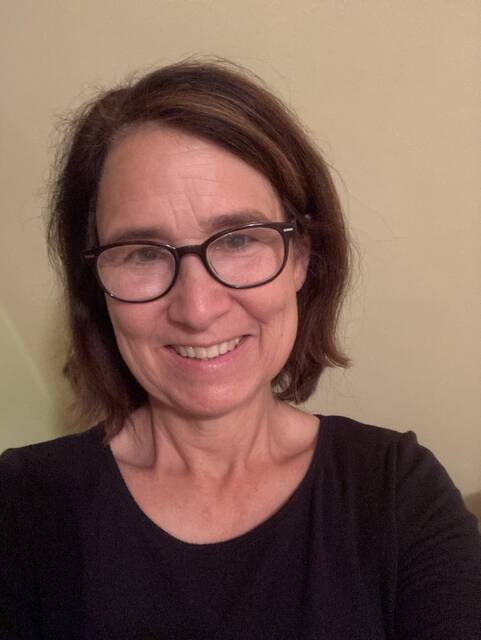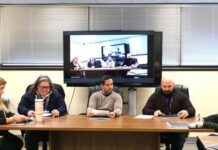Luzerne County Election Board Chairwoman Denise Williams told the study commission Monday that tension and discord between the board, county council, the manager and law office is a “critical concern” that must be resolved.
The solution must improve cooperation between these entities and prevent interference and abuse of power, Williams told the seven-citizen Government Study Commission tasked with evaluating the county’s home rule structure and possibly recommending changes that would be put before voters for possible adoption.
For background, the charter created a five-citizen election board with four members appointed by council (two Democrats and two Republicans). Those four members then select a fifth member of any affiliation or no affiliation to serve a chair.
As a backdrop, disagreements persist over which aspects of election oversight are controlled by the board and county manager.
Williams, a Democrat unanimously selected to fill the chair seat in April 2021, presented her recommendation Monday on how to address the matter.
For starters, she would add the county manager and two council members (one Democrat, one Republican) to the election board as non-voting members.
Regarding the manager, Williams said the board sometimes makes policy decisions at public meetings with bureau leadership present, only to learn after the meeting that the county manager has concerns or disagrees with the policy.
“I say let’s all sit at the same table and publicly discuss these issues so we’re all aware of what’s going on and things don’t change after meetings are over,” Williams said.
The county manager oversees employees and the council-approved budget under the home rule structure, so cooperation between the board and manager is necessary to carry out board decisions, Williams said. For those arguing the board should control staff and finances for elections, Williams said this is an administration role that could not be effectively handled on a daily basis by five citizen volunteers.
Some council members have argued they should have a say in election board decisions, and adding two non-voting council representatives would ensure they are fully aware of election matters and provide input, Williams said. She emphasized the council representation must be bipartisan, saying she does not believe the public would support two of the same party.
Another aspect of her proposal: require the chair seat to be filled by an Independent/no affiliation voter instead of a Democrat or Republican.
Williams said she makes decisions on the board “through the lens of nonpartisanship” but believes eliminating the possibility of a Democratic or Republican majority on the board is in the best interest of voters.
The fifth chair seat should remain the choice of the four council-appointed board members — not council — through a public search process, Williams added.
Williams said she’s already heard talk from some who can’t wait until she leaves so there can be a push to get a Republican board chair, which she described as the “elephant in the room.”
A chair not part of either party would “take that narrative out” and “be a very important move for trust,” she said.
This change also was recommended by the other speaker Monday — retired political science professor Tom Baldino.
Baldino served on the first election board under home rule, from 2012 through 2015. He and the three other council-appointed members selected Independent H. Jeremy Packard as the first board chair under home rule, which meant there was no Republican or Democratic majority.
Baldino said board votes on major issues were always unanimous, which he attributed to Packard’s ability to “walk the line between the two.”
Williams also believes the election board should have its own solicitor instead of receiving representation through the centralized county law office established by home rule.
Williams, who is in a term that expires April 20, 2025, said she put a lot of thought into her recommendation, noting it is “very difficult living with this tension.”
“I think the public wants to see these issues resolved and everyone working together for elections,” Williams said.
Williams opened her presentation by outlining the issues faced by today’s election board compared to the first board under home rule.
“When the first Board of Elections was in place, it was nowhere near the hyper-partisan and politically divisive climate as the current board’s political environment is,” Williams said. “Elections are now under the microscope nationally, and election boards face many outside pressures and much litigation.”
The state’s addition of mail ballot voting in 2020 “changed the election process profoundly” and dramatically increased the board’s work during post-election adjudication, she said.
Turnover in county administration and election bureau leadership also had an impact.
Williams said she believes the election bureau is “back on good solid ground with experienced leadership at the helm” and written standards of procedures in place.
The election board now has bylaws and written procedures governing public adjudication, she said.
“When I first started on the board, none of this was available or in place,” Williams said.
The study commission’s next meeting is Oct. 17. Commission Chairman Tim McGinley asked members to submit some charter issues they want to address to help with research and planning.
Reach Jennifer Learn-Andes at 570-991-6388 or on Twitter @TLJenLearnAndes.





